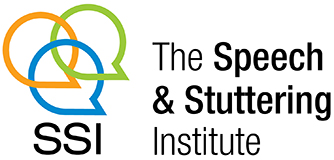Sometimes parents know when it’s time to call a speech therapist for their child. Maybe the doctor suggested a speech-language assessment for your toddler, and your supplemental benefits will pay for the appointment while you wait for a spot in the province’s Preschool Speech and Language Service. Maybe your child still needs help with speech after reaching the maximum number of sessions at school.
However, sometimes parents aren’t sure if it’s time to call a speech therapist. Maybe you are the only one who can understand your child’s speech. Maybe your daughter’s speech makes her sound younger than other kids her age. Maybe your son uses shorter sentences or has a smaller vocabulary than his brother did at the same age. Maybe your child gets so frustrated when other people don’t understand that you just don’t know how to help anymore. There’s a wide range of “normal” during child development, but parents should always take their concerns about a child’s speech and language difficulties seriously. Still, it can be hard to take the first step and call a speech therapist when you don’t really know what that involves.
Here’s what will happen if you decide to call The Speech and Stuttering Institute:
1) You can speak directly to a pediatric Speech-Language Pathologist (SLP). For concerns about your child’s communication and/or speech skills, call Debbie Panagakos at 416-491-7771, ext. 222. If you don’t reach Debbie immediately, leave a message and you will get a call back within a day or two. You can call about a child of any age, and you do not need a referral from another professional.
2) You can describe your concerns and find out whether or not a speech-language assessment is recommended.
- If the concerns you describe actually relate more to stuttering than speech or language, you will be directed to our Children’s Stuttering Program
- Likewise, for concerns about speech development in children with autism, you will be directed to our ASD Speech Therapy Program
3) If a speech-language assessment is recommended based on your concerns, you will provide some additional background information about your child and about your family’s communication history to start your child’s file.
4) You will discuss your preferred days and times for an initial assessment appointment.
5) The Speech-Language Pathologist who can best meet your child’s needs and your time preferences will then call you to set up an assessment appointment.
6) You will get information about how to find our clinic, and about the assessment fee and payment options. You can also talk about when the next therapy spot would become available if the assessment results show that your child would benefit from speech therapy, as well as what the fees and payment schedule for speech therapy would be.
7) You will be able to ask any other questions you have (although specific questions about your child’s needs generally can’t be answered before the therapist has met, interacted with, and assessed your child).
An assessment is just a first step – it doesn’t mean that you are committing to attending therapy. You will get a chance to decide on the next steps that are right for your child and your family based on the recommendations from the initial assessment.
